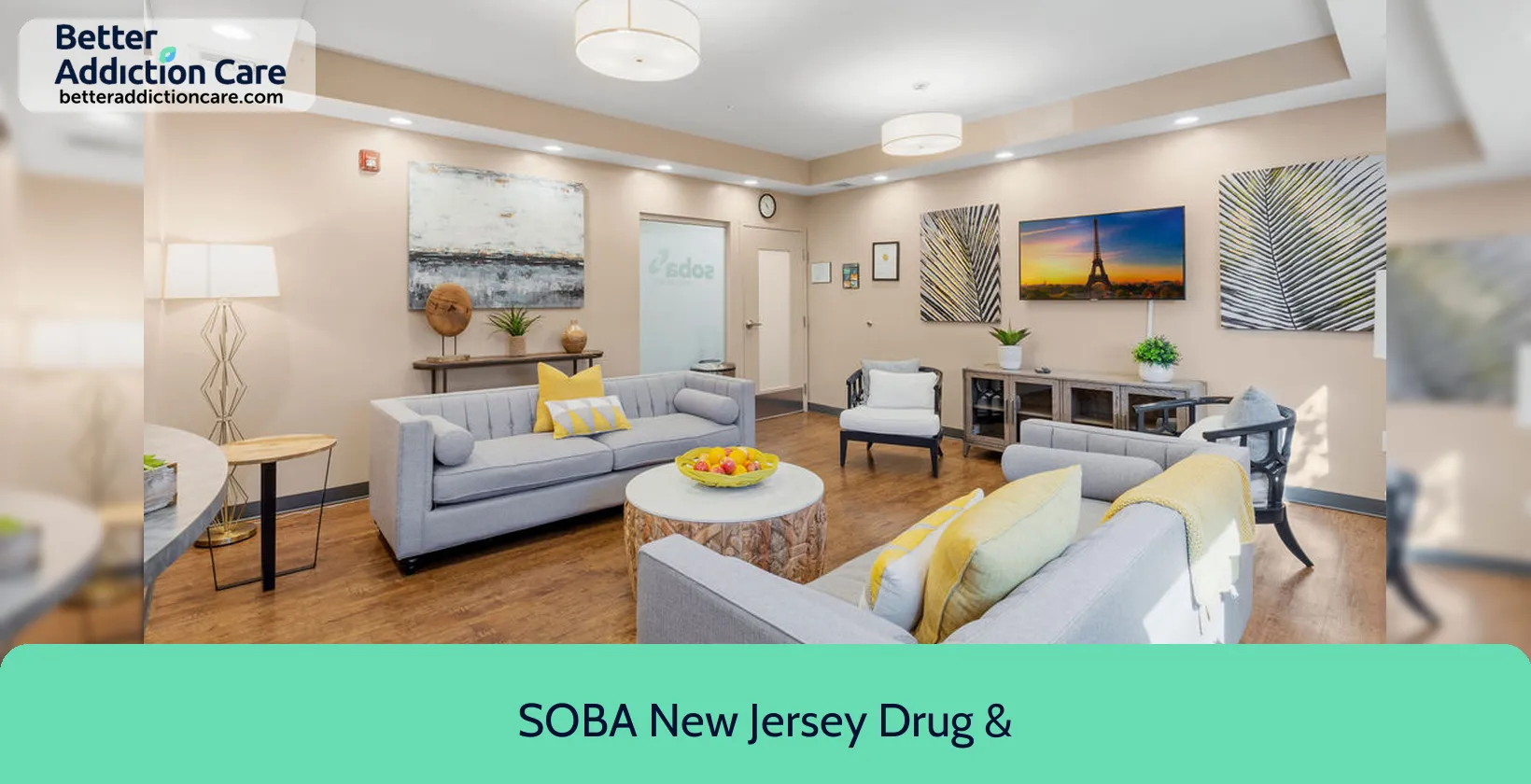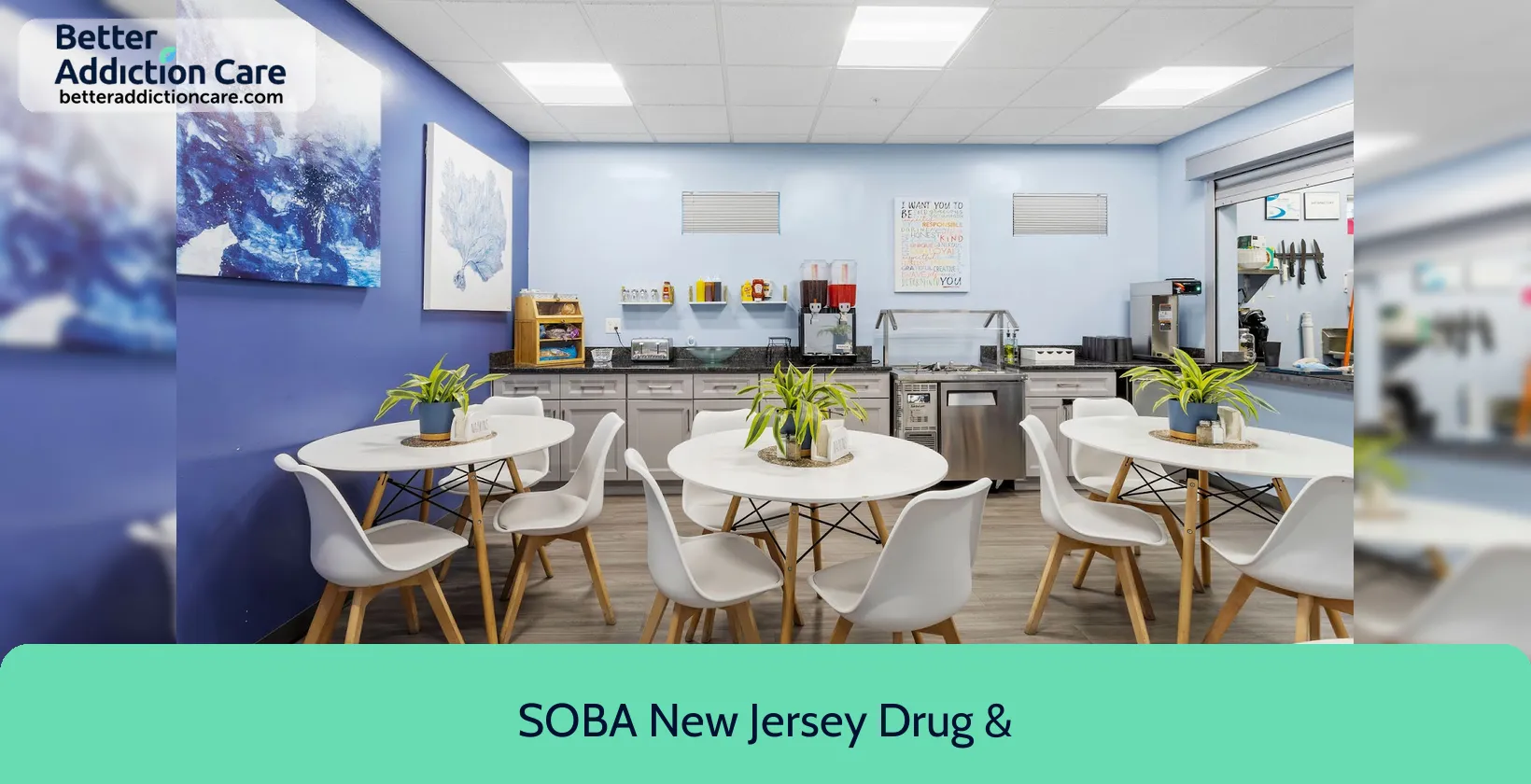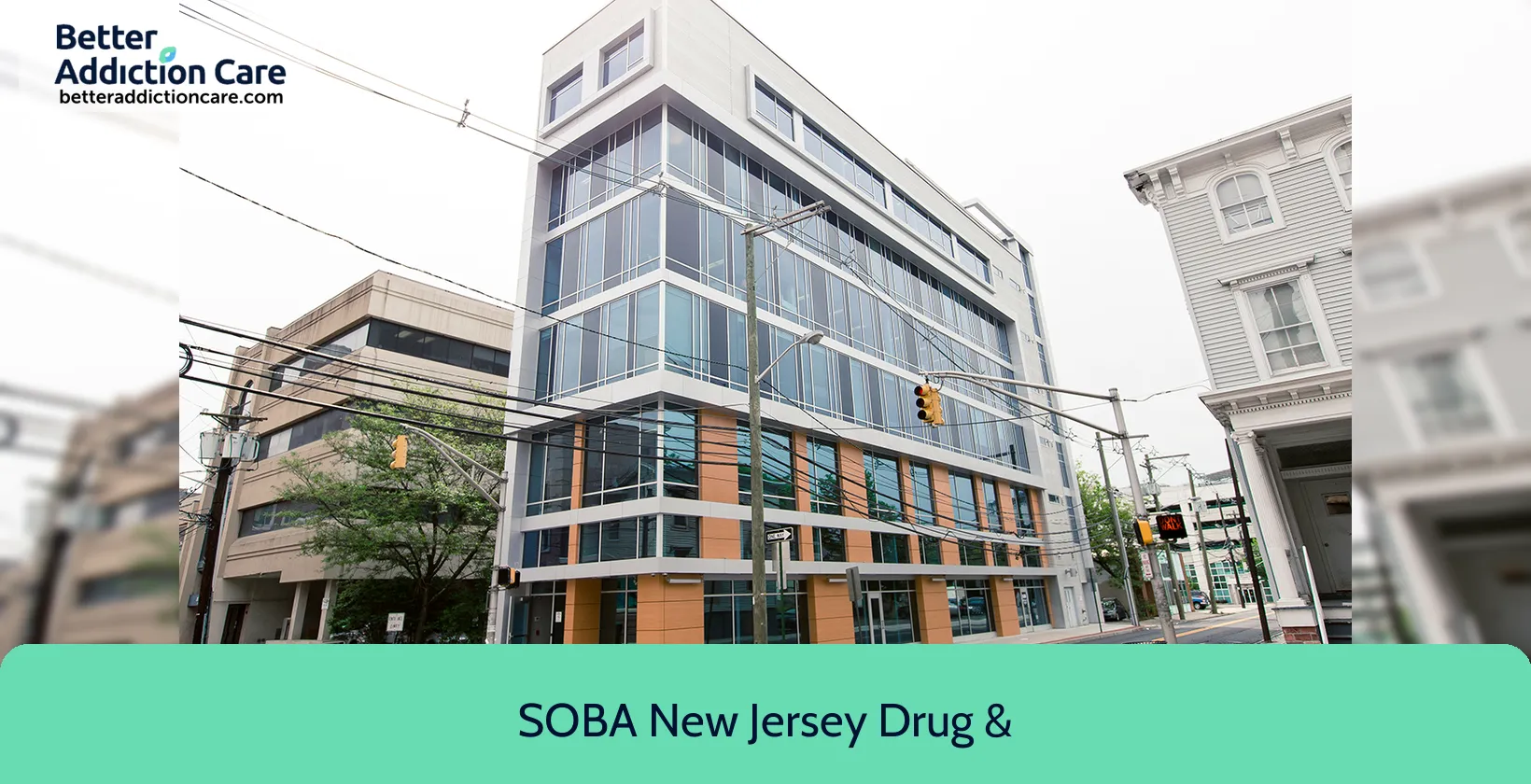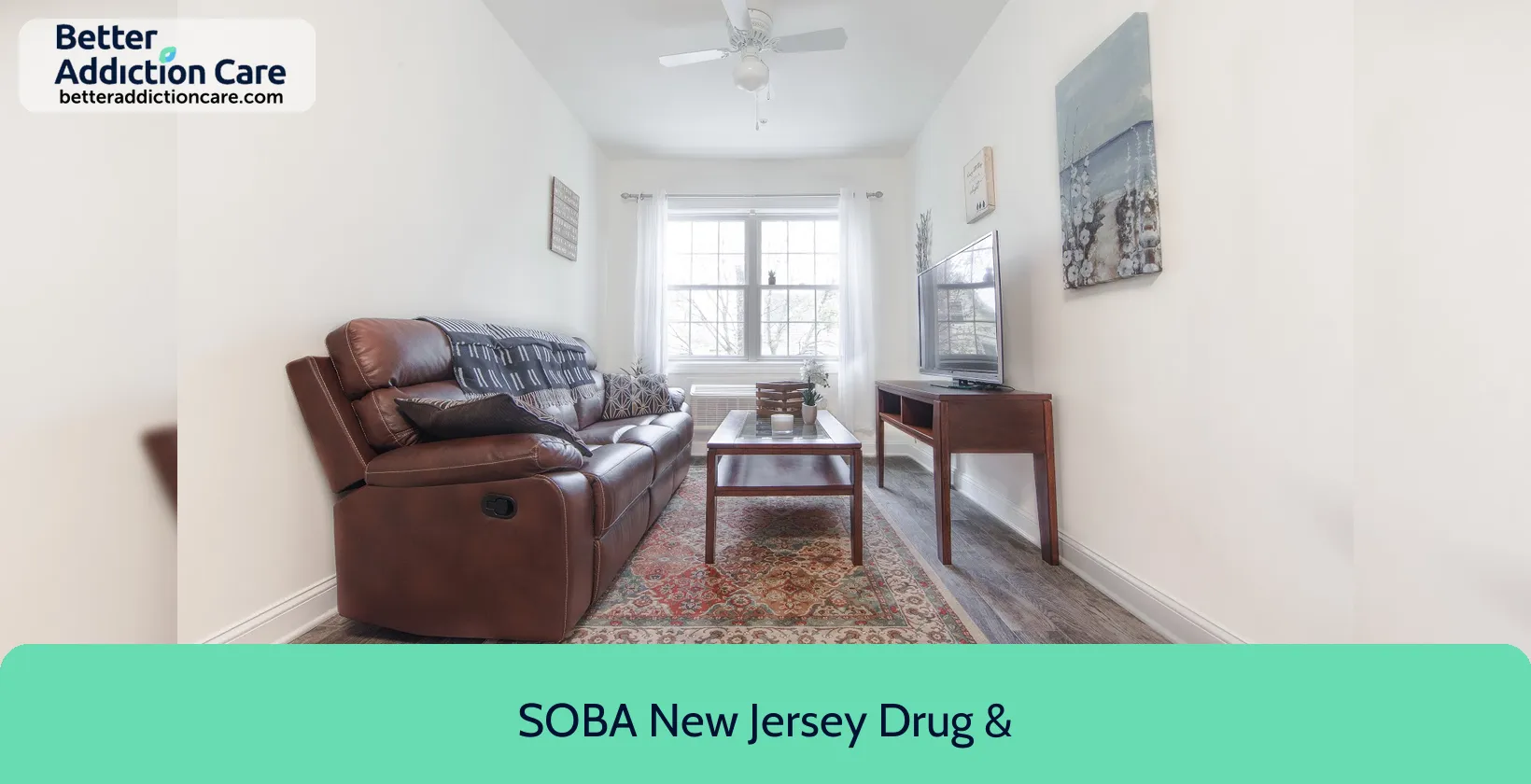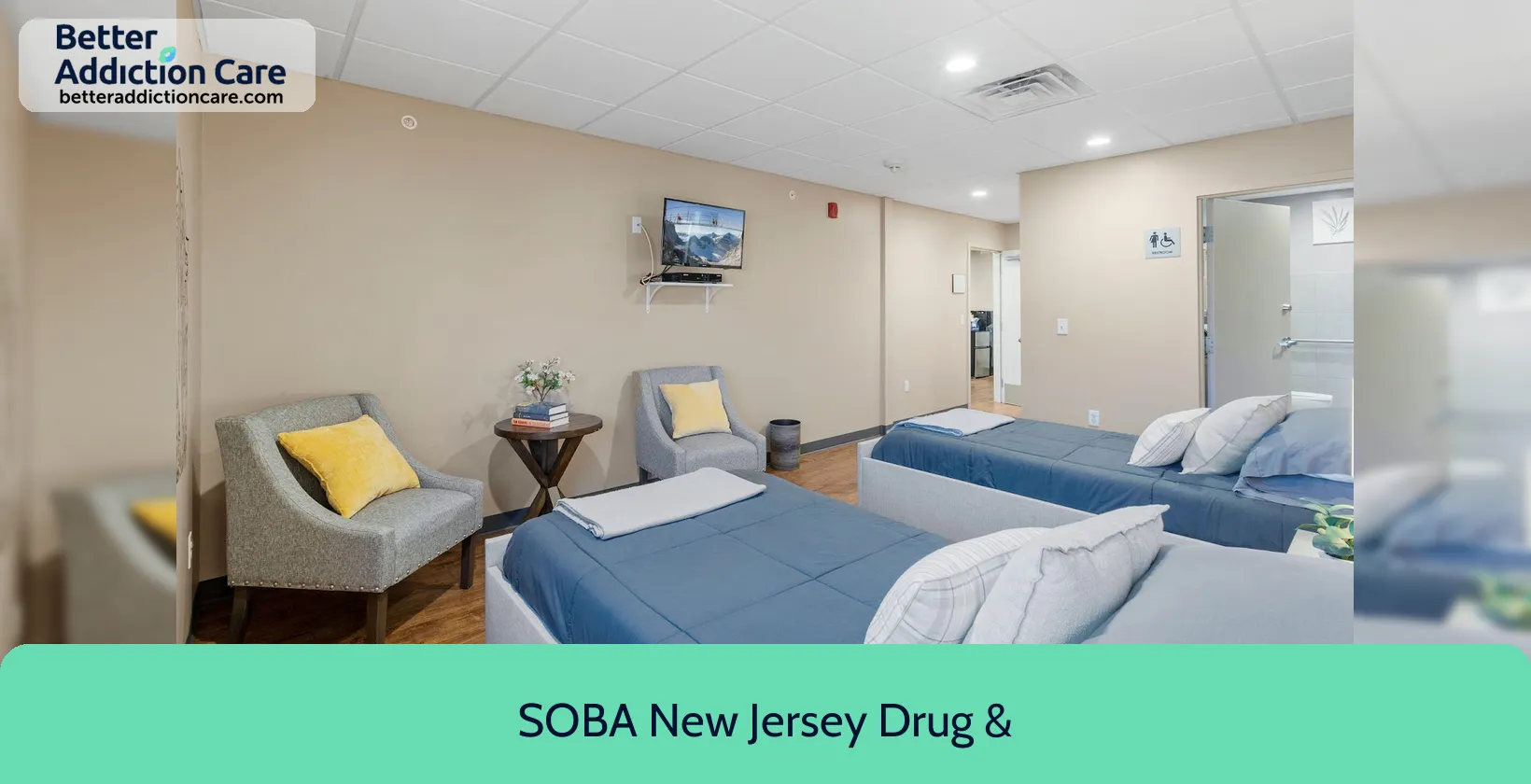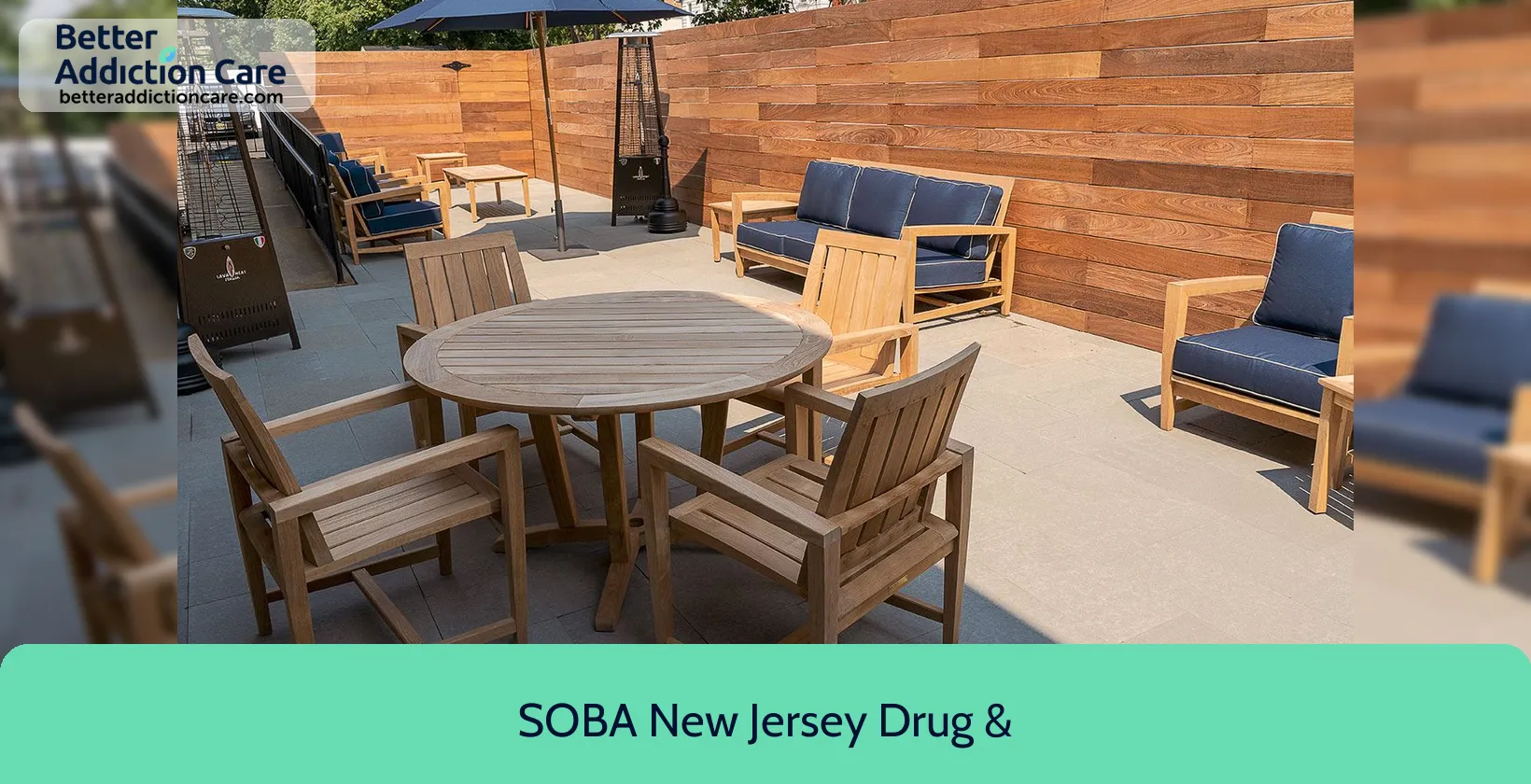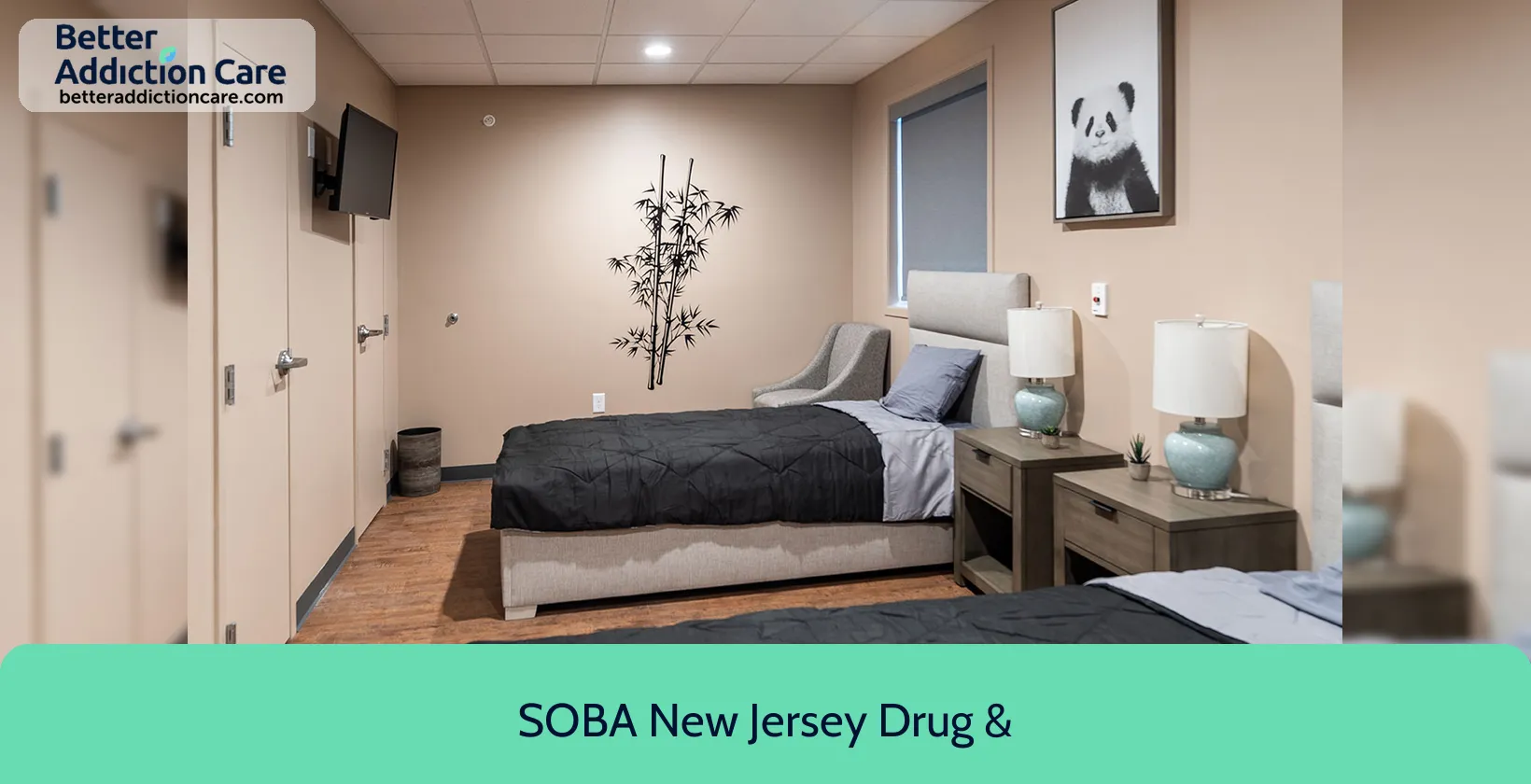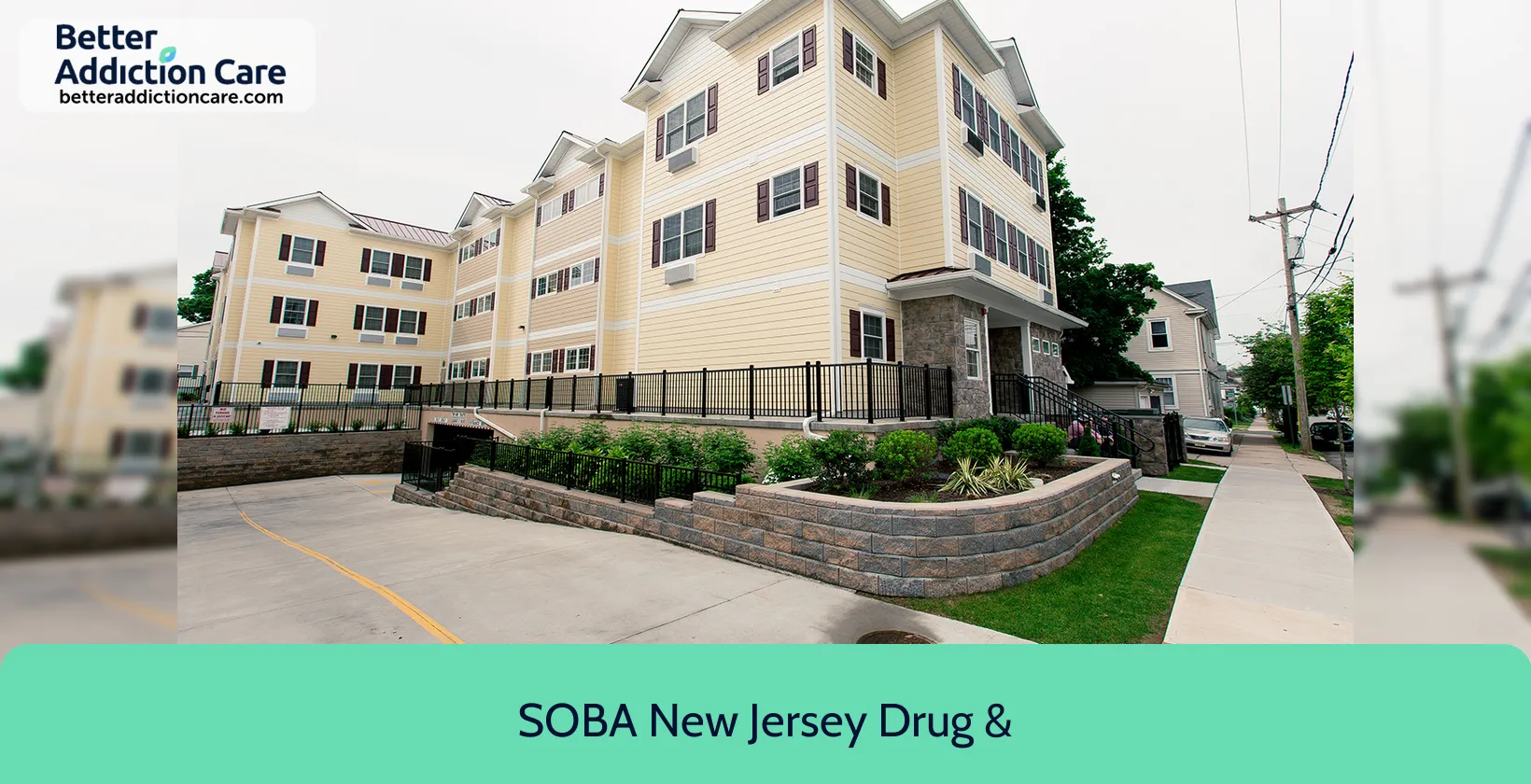SOBA New Jersey Drug & Alcohol Rehab
Overview
Soba Recovery Centers is a well-known drug and alcohol rehab center having facilities in Texas, California, and Arizona. Well-known for its all-encompassing approach, Soba Recovery Centers provides individualized counseling to assist people in choosing the optimal course of treatment for their particular circumstances. Whether you're looking for continuous assistance or are just starting your recovery path, the center offers a variety of programs that are all provided in cutting-edge facilities.
Soba Recovery Centers' dedication to providing specialized programs that target each step of the recovery process is the cornerstone of their methodology. A critical first step that guarantees a secure and encouraging atmosphere as the body acclimates to sobriety, medical detox is where many people start their path. Depending on the individual requirements of the client, this first phase is often followed by a move into one of the center's other programs, such outpatient services or residential recovery.
Addiction is recognized by Soba Recovery Centers as a complex illness that affects the body, mind, and soul. Their therapy plans are made to deal with these issues in-depth. Your treatment plan will be tailored to include a range of evidence-based treatments and, if required, medicines for alcohol or opioid addiction, regardless of whether you need inpatient or outpatient care. The program's core consists of individual and group therapy sessions that assist clients in investigating the root reasons of their drug use and acquiring the skills necessary to sustain long-term sobriety.
Many times, Soba Recovery Centers' clients say that the facility was essential to their path to long-lasting recovery. Their ability to lead satisfying, drug-free lives is greatly aided by the individualized care and assistance they get.
Now offering full services to SOBA New Jersey, Soba Recovery Centers now has sites in Arizona, Texas, and California. Adults with a variety of drug use problems are treated at this facility using integrated therapy that uses a dual-diagnosis approach to treat co-occurring mental and behavioral health issues in addition to addiction.
The programs offered by SOBA New Jersey are intended to assist in the healing of people as well as families, providing the direction, know-how, and resources required to establish a solid basis for future success. Because of the center's dedication to holistic therapy, clients are given care that tackles the underlying reasons of addiction, opening the door to long-lasting recovery.
With a Joint Commission accreditation, LegitScript verification, and state license in New Jersey, SOBA New Jersey has shown its dedication to provide reliable, high-quality healthcare.
SOBA New Jersey Drug & Alcohol Rehab at a Glance
Payment Options
- Cash or self-payment
- Private health insurance
- Self-pay options
- Sliding scale payment assistance
- Military insurance
Assessments
- Screening for tobacco use
- Comprehensive mental health assessment
- Comprehensive substance use assessment
- Outreach to persons in the community
- Screening for mental disorders
Age Groups
- Young adults
- Adults
- Seniors or older adults
Ancillary Services
- Case management service
- Suicide prevention services
- Domestic violence services, including family or partner
- Early intervention for HIV
- Mental health services
Highlights About SOBA New Jersey Drug & Alcohol Rehab
7.78/10
With an overall rating of 7.78/10, this facility has following balanced range of services. Alcohol Rehabilitation: 8.00/10, Drug Rehab and Detox: 8.15/10, Insurance and Payments: 6.40/10, Treatment Options: 8.55/10.-
Treatment Options 8.55
-
Drug Rehab and Detox 8.15
-
Alcohol Rehabilitation 8.00
-
Insurance and Payments 6.40
Accreditations
State mental health department:
State mental health department accreditation refers to the process of evaluating and certifying the quality and standards of a state's mental health department, ensuring that it provides high-quality services and meets specific criteria for mental health care. The accreditation process is performed by a third-party organization and helps to improve the overall care and treatment of individuals with mental health conditions.
State department of health:

Government agencies issue State Licenses, granting rehabilitation organizations permission to operate their businesses legally within specific geographic regions. The licenses needed for legal operation are typically determined by the type of rehabilitation program offered by a facility and its physical location.
The Joint Commission:

The Joint Commission, previously known as JCAHO, is a nonprofit organization that accredits rehabilitation organizations and programs. Established in 1951, its mission is to enhance the quality of patient care and showcase excellence in healthcare delivery.
Effective date: 05/31/2016
Registration: 575762
NAATP:

The National Association of Addiction Treatment Providers (NAATP) accreditation for addiction and behavioral health is a recognized and respected certification that signifies a treatment center's commitment to delivering high-quality services in the field of addiction and behavioral health. It serves as an assurance of compliance with industry standards and best practices, ensuring that individuals seeking help receive effective and ethical care. Accreditation from NAATP demonstrates a facility's dedication to maintaining rigorous standards, fostering accountability, and prioritizing the well-being and recovery of its clients.
Treatment At SOBA New Jersey Drug & Alcohol Rehab
Treatment Conditions
- 24-Hour Clinical Care
- Alcoholism
- Mental health treatment
- Substance use treatment
- Co-occurring Disorders
Care Levels
- Outpatient
- Outpatient methadone/buprenorphine or naltrexone treatment
- Outpatient day treatment or partial hospitalization
- Intensive outpatient treatment
- Regular outpatient treatment
Treatment Modalities
- Cognitive behavioral therapy
- Telemedicine/telehealth therapy
- Substance use disorder counseling
- Trauma-related counseling
- Smoking/vaping/tobacco cessation counseling
Ancillary Services
Languages
- Sign language services for the deaf and hard of hearing
Additional Services
- Pharmacotherapies administered during treatment
- Mentoring/peer support
- Breathalyzer or blood alcohol testing
Special Programs
- Clients with co-occurring mental and substance use disorders
- Criminal justice (other than DUI/DWI)/Forensic clients
- Clients with HIV or AIDS
- Clients who have experienced trauma
- Clients who have experienced sexual abuse
Get Help Now
Common Questions About SOBA New Jersey Drug & Alcohol Rehab
Contact Information
Other Facilities in New Brunswick

6.86

7.19

7.56
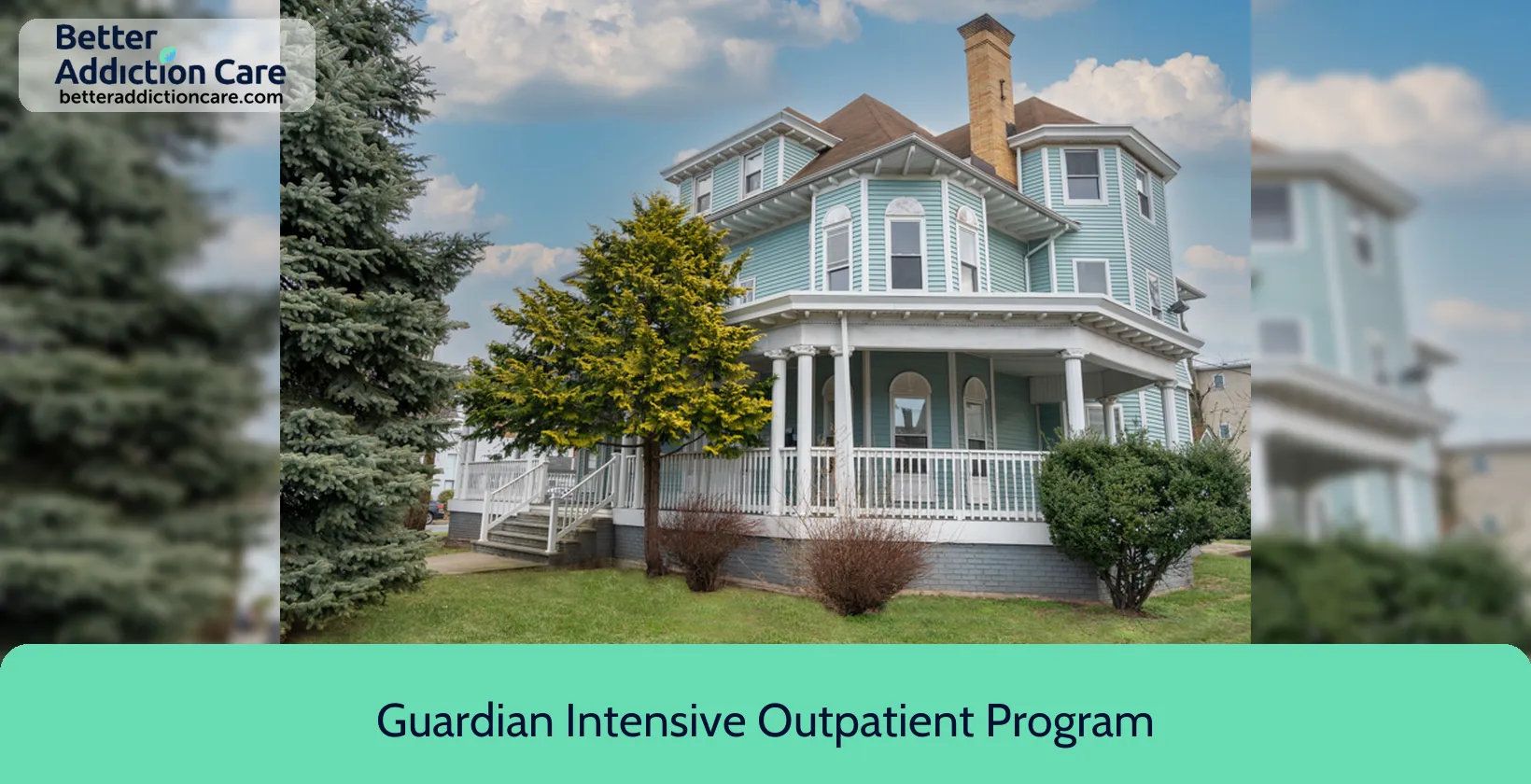
7.13

7.58
DISCLAIMER: The facility name, logo and brand are the property and registered trademarks of University Behavioral Health Care - Rutgers Health, and are being used for identification and informational purposes only. Use of these names, logos and brands shall not imply endorsement. BetterAddictionCare.com is not affiliated with or sponsored by University Behavioral Health Care - Rutgers Health.

